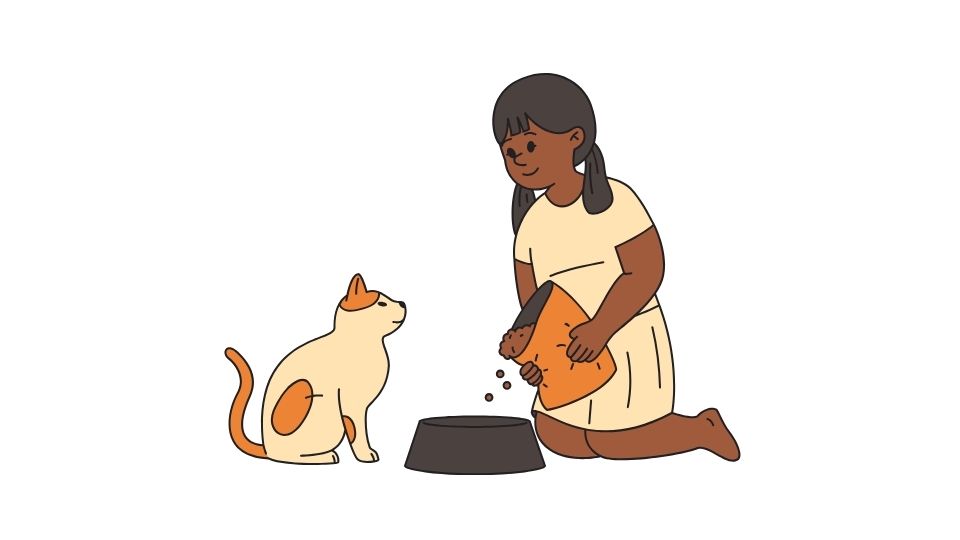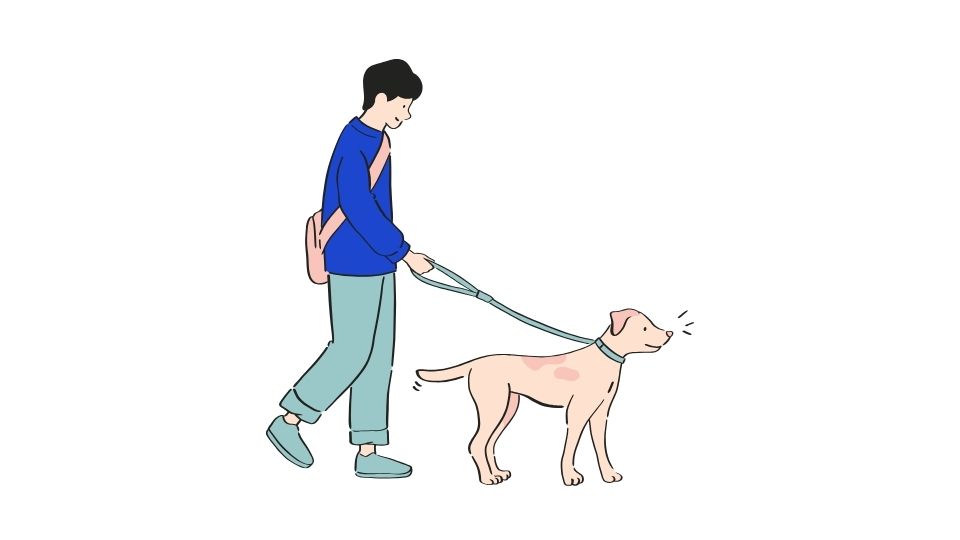Is Protein Powder Safe for Pets? (What Vets Say)

Ever wondered if that protein powder you’re using to bulk up could help your furry friend too?
Let’s face it – we all want our pets to be healthy, and protein is a big part of that equation. But before you start scooping your whey protein into Fido’s bowl, there are some important things you need to know.
I did the research so you don’t have to, and I’m going to break down everything about protein supplements for pets – what’s safe, what’s dangerous, and what actually works.
Can Pets Have Protein Powder?
The short answer is yes, but with some big asterisks.
Pets can safely have protein powder only if it’s:
- Specifically formulated for pets
- Given in appropriate amounts
- Approved by your vet
That tub of pre-workout or muscle-building supplement you use? Keep it far away from your pet.
Why Human Protein Powder Is Dangerous for Pets

Your protein powder might be helping you get swole, but it could send your pet to the emergency vet.
Human protein powders often contain ingredients that are straight-up toxic to animals. The biggest villain? Xylitol – an artificial sweetener found in many supplements that can cause rapid insulin release in dogs, leading to hypoglycemia, seizures, liver failure, and even death.
Even without xylitol, human protein powders contain:
- Artificial flavors and sweeteners
- Vitamin and mineral blends formulated for humans
- Digestive enzymes our pets don’t need
- Doses that are way too high for animal metabolism
As Dr. Jerry Klein, Chief Veterinary Officer for the American Kennel Club puts it, “Human supplements aren’t formulated with a pet’s unique metabolism in mind and can cause serious health issues.”
When Protein Supplements Actually Make Sense for Pets
Most healthy pets eating good quality commercial pet food get all the protein they need. But there are exceptions where a pet-specific protein supplement might help:
- Senior pets losing muscle mass
- Pets recovering from surgery or illness
- Athletic dogs that train or compete regularly
- Pets with certain medical conditions affecting protein absorption
- Dogs or cats on homemade diets that might be protein-deficient
I once had a senior Labrador who started losing muscle in her hind legs. My vet recommended a pet-specific protein supplement, and within a few weeks, I could see improvement in her mobility and energy.
Choosing the Right Protein for Your Pet

If your vet agrees your pet needs extra protein, here’s what to look for:
Pet-Specific Protein Powders
These are specifically formulated for dogs or cats with:
- Appropriate protein levels
- No harmful additives
- Often include other beneficial nutrients like omega fatty acids
- Usually derived from whey, egg, or high-quality animal proteins
Vetri Science Canine Plus makes a popular protein supplement designed specifically for dogs that many vets recommend.
Food Toppers
Another great option is protein-rich food toppers made for pets. These can be:
- Freeze-dried meat
- Bone broth protein
- Dehydrated protein sources
Natural Protein Sources
Sometimes the best supplement isn’t a powder at all:
- Plain Greek yogurt (small amounts)
- Cooked egg whites
- Lean cooked meats without seasonings
- Cottage cheese (if your pet tolerates dairy)
A study from the Journal of Animal Science showed that whole food protein sources are often better utilized by pets than highly processed supplements.
How to Safely Add Protein to Your Pet’s Diet
If your vet gives you the green light, here’s how to do it right:
- Start small – introduce tiny amounts first to watch for reactions
- Be consistent – protein needs change as pets age, so regularly reassess
- Monitor for side effects – watch for digestive upset, changes in urination, or behavior changes
- Keep track – note improvements or problems to report back to your vet
Too much protein can stress your pet’s kidneys and liver, especially in older animals or those with existing health conditions. More isn’t always better!
Warning Signs Your Pet’s Protein Supplement Isn’t Working

Stop and call your vet if you notice:
- Vomiting or diarrhea
- Increased thirst or urination
- Lethargy or weakness
- Changes in appetite
- Any unusual behavior
The pet nutrition experts at Tufts Veterinary Medical Center warn that even pet-specific supplements can cause problems in some animals.
Final Thoughts: Protein Powders and Your Pet

The protein supplement industry for pets is growing fast, but the science is still catching up. Here’s what I’ve learned:
- Never give human protein supplements to pets
- Most healthy pets don’t need extra protein
- If you think your pet needs more protein, talk to your vet first
- Choose pet-specific formulas if supplements are needed
- Whole food sources of protein are often better than powders
According to PetMD, “A balanced commercial pet food should provide all the protein a healthy pet needs. Supplements should only be used when recommended by a veterinarian for specific health conditions.”
Remember that story about my Lab I mentioned earlier? Well, what I didn’t tell you is that before talking to my vet, I tried giving her a tiny bit of my own protein powder. She was vomiting within hours. Lesson learned the hard way.
Your pet depends on you to make good choices for their health. When it comes to supplements, that means getting professional advice rather than following the latest pet wellness trend on TikTok.
And hey, keep that protein powder on a high shelf—our furry friends are crafty when it comes to getting into things they shouldn’t!
